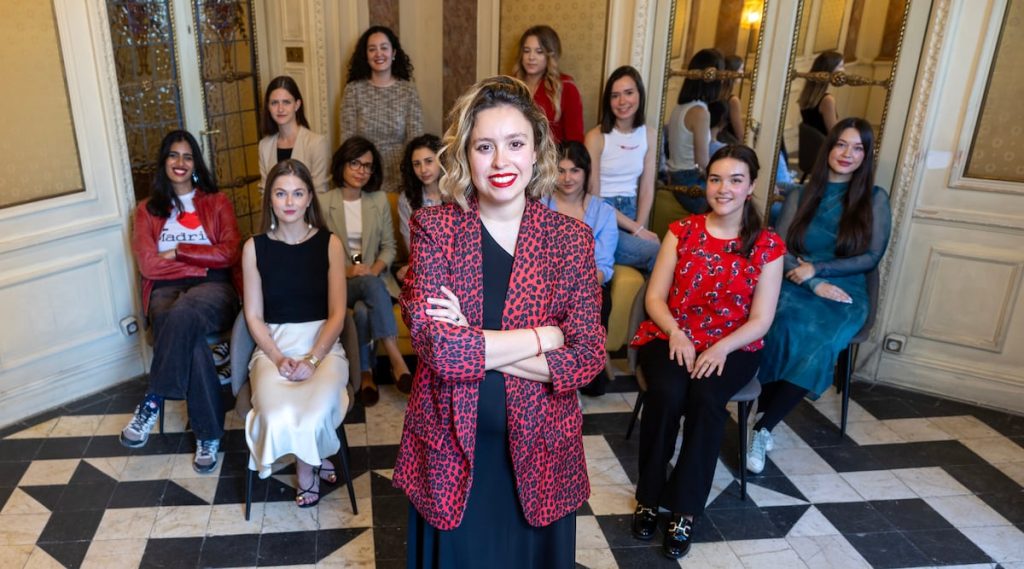Elsa Arnaiz, a 26-year-old born in Burgos, believes that in life you have to be bold. At 23, she took on the presidency of the Talento para el Futuro platform, which was created a year earlier to pull young people away from enraged tweets and reconnect them with politics through concrete actions. She convinced the U.S. embassy to finance one of their early projects with 50,000 euros. Graduated in Law and International Relations from IE University and a recent collaborator with the World Bank, Arnaiz attributes her boldness to her mother, who leads a family business in plastic materials. She emphasizes the importance of believing in oneself and actively seeking opportunities.
Arnaiz and her team, composed of two other young women, have observed a lack of female success stories in their work within the platform. They have also noticed a scarcity of women in advisory roles on public affairs and regulation teams. Frustrated by this, they launched the Mujeres al frente program in 2023, aimed at encouraging 80 young women aged 18 to 35 to engage in politics, either actively or behind the scenes as advisors or chiefs of staff, and to bring the women’s perspective into institutions. Arnaiz highlights the importance of teaching leadership, negotiation, and persuasive communication to women, as they often underestimate their abilities. She laments the lack of leadership programs in Spain that are accessible to women.
During their time in the program, the group of young women from different parts of the country attended five in-person workshops in Madrid. Irene Milleiro, director of the Ashoka Spain foundation, emphasized the changing nature of power, moving from traditional masculine-based power to a more open, transparent, and diverse form of power. She encouraged the young women to be authentic, speak their truth, take compliments gracefully, and build networks to access opportunities. The discussions also touched on the importance of collaboration over competition among women.
The group of young women participating in the program had the opportunity to interact with professionals from various fields, including politics and gender equality. Paola Cannata, a political scientist and chief of staff at the Ministry of Health, highlighted how informal hierarchies exclude women from decision-making processes in both companies and public institutions. The discussion touched on the importance of formalizing decision-making processes and ensuring transparency and inclusivity. Participants shared personal experiences and concerns about navigating male-dominated spaces.
Alba Crusellas, a gender equality consultant, discussed the importance of formal procedures in ensuring equal representation and opportunities for women in politics. She emphasized the need for clear structures that allow women to claim their rightful place in decision-making roles. The group also explored strategies for building political role models, drawing inspiration from literary and real-world figures. The young women reflected on their own paths and aspirations, finding encouragement to embrace their unique leadership styles and forge connections with influential figures in their desired fields.
The program not only provided the participants with valuable insights and tools for navigating male-dominated spaces but also sparked discussions about societal expectations and the need for systemic change. As the young women shared their experiences and aspirations, they gained confidence in their abilities to challenge traditional power structures and advocate for gender equality. The ongoing efforts to empower women in politics and beyond are a testament to the collective determination to create a more inclusive and equitable society.


